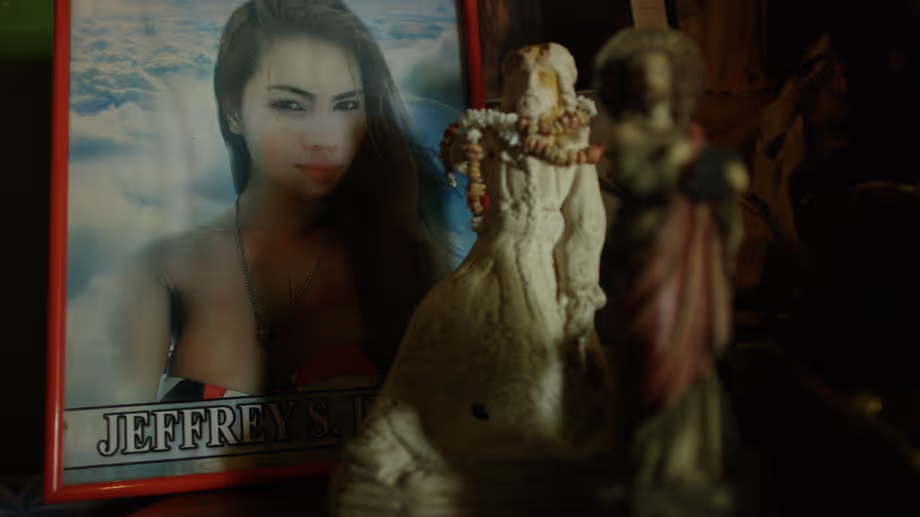When the Political Becomes Personal: U.S. Imperialism in the Philippines Activities
Activities

Lesson Opening
Introduce the film by reading this short synopsis from CallHerGanda.com:
● When Jennifer Laude, a Filipina trans woman, is brutally murdered by a U.S. Marine, three women intimately invested in the case—an activist attorney (Virgie Suarez), a transgender journalist (Meredith Talusan) and Jennifer’s mother (Julita “Nanay” Laude)—galvanize a political uprising, pursuing justice and taking on hardened histories of U.S. imperialism.
Activity: Day One
Students will use clips from Call Her Ganda and the associated film transcript to conduct a Socratic Seminar on the following essential question:
● How does the murder of Jennifer “Ganda” Laude reveal the ways that imperialist policies intersect with gender, violence and transphobia?
As a class, students will watch each of the clips and use the reflective questions on Handout One: Call Her Ganda Note Catcher to write their initial reactions, thoughts and feelings. Before showing each clip, read or project the reflection questions on Handout One associated with that clip. After each clip, offer students a few moments to complete their note taking.
Spend a few minutes discussing each clip with the class to assess for understanding and briefly explore any questions that are raised.
For clarity, read students the contextual information between Clips 3 and 4 provided above.
Homework:
Students will take home their notes and the transcripts for each of the clips to prepare their answers for a Socratic Seminar on Day Two on aspects of the following essential question:
● How does the murder of Jennifer “Ganda” Laude reveal the ways that imperialist policies intersect with gender, violence and transphobia?
Activity: Day Two
Review the Classroom Contract for Socratic Seminar dialogue, wherein students will use evidence from the film clips to respond to one another as they discuss the following open-ended dialogue prompts:
1. Director PJ Raval says, “Call Her Ganda is a protest against the extreme violence and discrimination that trans women face around the globe. It is a tribute to the 3.4 million Filipinos living in the U.S. and diaspora. And, it is a lesson for a global audience largely ignorant of the legacy of U.S. imperialism in my parent’s homeland.”
● In what ways did the clips you watched achieve the director’s stated goals?
● Is it your experience that the legacy of U.S. imperialism in the Philippines is largely unknown in the U.S.? If not, what have you learned about it? If so, why do you think that is the case?
● Describe your understanding of the function of U.S. imperialist policies: What is the purpose of imperialism? How does imperialism affect individuals and families living in colonized countries?
2. Discuss moments in the clips where it is visible that imperialism affects people of different genders differently.
3. Many of the tweets and comments in response to journalist Meredith Talusan's articles are extremely transphobic, such as, "Indeed, Pemberton is the victim," and "Justified homicide. [Pemberton] should get the red-carpet treatment back to America..."
● How do you believe Jennifer Laude’s transgender identity influenced how this case was prosecuted in the Philippines and perceived around the world?
● Discuss the history and cultural norms you’ve learned about that you believe influenced the nature of those tweets.
4. How do you see the legacy of imperialism in the Philippines influencing the current political situation with Trump and Duterte? This New York Times article describes the meeting between Trump and Duterte that is depicted in the film.
5. How does the murder of Laude reveal the ways that imperialist policies intersect with gender, violence and transphobia?
6. Do you see the case of Jennifer Laude resonating with domestic politics happening in the U.S.? In what ways?
Closing Activity
In pairs or small groups, have students evaluate the seminar with questions. Following are some suggestions:
● Were there moments during the Socratic Seminar when dialogue became difficult? If so, was there a pattern to when that happened?
● What did you learn from this dialogue that was new or surprising to you?
● In what ways, if any, did these clips and the Socratic Seminar change your prior understanding of the issues chronicled in the documentary?

